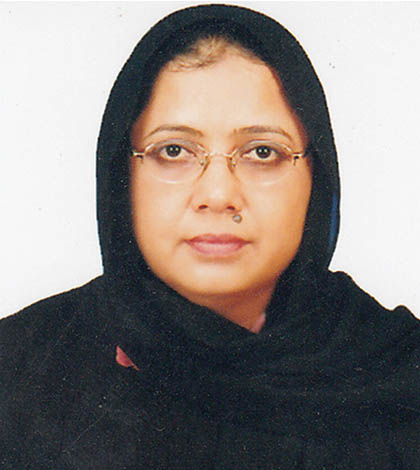
 For the last 26 years, the Thassim Beevi Abdul Kader College for Women in Kilakarai of Ramanathapuram district of Tamil Nadu is working hard to empower the Muslim girls of this not-so-developed region
For the last 26 years, the Thassim Beevi Abdul Kader College for Women in Kilakarai of Ramanathapuram district of Tamil Nadu is working hard to empower the Muslim girls of this not-so-developed region
The Thassim Beevi Abdul Kader College for Women was established in 1988 to support, uplift and empower Muslim girls. Before the institution came into being, there was no women’s college for the minority community girls in the State of Tamil Nadu. After the birth of JBAS College for Women (formerly SIET) in Chennai in 1955, until 1988, there was a big gap in Muslim women’s higher education in the state, as only well-off families of the community could afford to educate their daughters in Chennai. The birth of this institution in 1988 came as a huge relief for the Muslim girls of this region.
Today, this college is a blessing for women coming from the Muslim community. The college has completed 26 years of service in providing higher education, and many women have now received degrees from the institution.
Partners in a Cause
The institution has made significant efforts to interact with various institutions and industries, and partnered with some of them:
1. ICT academy of Tamil Nadu, Chennai
2. Indian Institute of Crop Processing Technology, Tanjore
3. Tamil Nadu Food Grains Marketing Yard, Madurai
4. Regional Directorate of Employment and Training, Madurai Region
5. CMFRI, Mandapam Regional Centre
6. Mother Teresa Women’s University, Kodaikanal
7. IGNOU, New Delhi
The founding father of this college, Alhaj B S Abdur Rahman, a philanthropist of Kilakarai town, dreamt of establishing a college exclusively for Muslim girls. The college was founded in 1988 by Rahman Sahib and sponsored by the Seethakathi Trust, Chennai, which has established various educational institutions par excellence. The college was named after the founder’s sister Thassim Beevi and her husband Janab Abdul Kader. She and her husband died in an accident on 24th January 1977 while returning after attending the school day function at the Crescent Residential School, Chennai. Thassim Beevi was a very enthusiastic lady who was interest- ed in the higher education for women.
The college has made many initiatives for the past 25 years to educate poor Muslim girls by creating student welfare fund, TBEES Scholarship Scheme, pri- vate scholarships, government and minority scholarships for Muslim girls and other SC/ST scholarships for SC/ST students to support them financially.
There are two factors as to why many minority institutions do not become popular. Firstly, there is a misconception and mindset among the non-minority communities that minorities propagate and coerce their faith. Also, the survival of self-financing minority arts and science colleges mainly depends upon the fees they collect which is not sufficient to make both ends meet.
The challenges of running a minority girls institution in a not-so-developed region like this are multi-dimensional in nature, including payment of high affiliation charges to the parent university or higher education body while introducing new programmes. As per the policy of the Government of Tamil Nadu, grant-in-aid is not given to educational institutions started after 1988. Running a college with the available finance collected by way of fees would not be of much help in running an educational institution, particularly arts and science colleges.



















